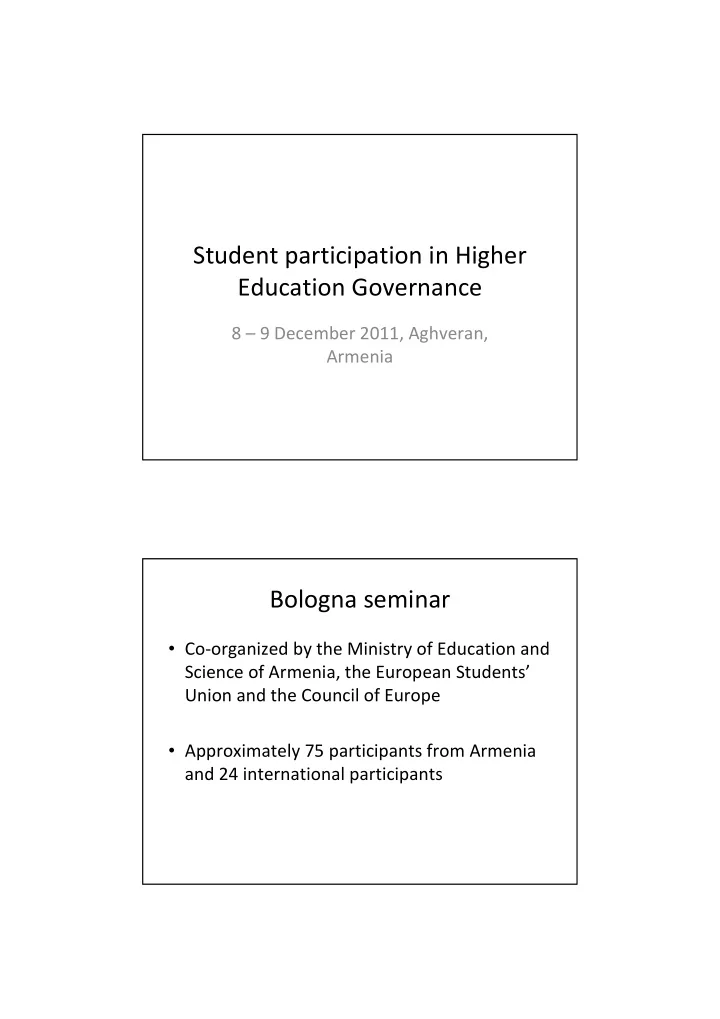

Student participation in Higher Education Governance 8 – 9 December 2011, Aghveran, Armenia Bologna seminar • Co-organized by the Ministry of Education and Science of Armenia, the European Students’ Union and the Council of Europe • Approximately 75 participants from Armenia and 24 international participants
Development of student participation – setting the scene • Prague communiqué 2001 “students are full members of the academic community” • Bologna seminar in Oslo 2003 • Overview of the development through policy frameworks of the Bologna Process, the Council of Europe and the European Students’ Union – the Background Document • Continuous process – there is no option “task done” for student participation Development of student participation – setting the scene • “Defined as students’ formal and actual ability to influence decisions made in the context of a higher education institution or public authority.” by Manja Klemencic • Fundamental elements: degrees of intensity; domains; multilevel nature • Formal participation versus genuine participation
Students as learners • Student participation in quality assurance of higher education – internal, external, QA agencies, accreditation councils – profession/field accreditation • Student centered learning, a more rewarding process for all – paradigm shift: student participation starts in the classroom Students as members of the academic community • National policies on student participation in institutional governance • Legislative frameworks and their implementation – guarantee of participation • The dangers of the perception of students as consumers • Agenda setting, voting and implementation of all issues concerning academic community
Students as citizens • Student participation enhances active citizenship • Student participation is an indicator of democracy and the culture of dialogue • Students can act as agents of development, solidarity and cooperation • Critical thinking and promotion of diversity – time, place and need to think What can students do? • Student rights charter 2008 • ESU Budapest declaration: access to information, consultation, dialogue and decision making • QUEST project – training and expertise
What can students do? • Representativeness and continuity of student representatives • Informing students about participation, its models and values • Encourage diversity within organizations and dialogue among their members What can other stakeholders do? • Formal involvement does not guarantee actual participation • Long term institutional support and resources (providing means) – the encouraging environment • Political will – follow the changes in institutional governance
What can other stakeholders do? • Transparent governance (and) procedures • Encourage common ownership and shared responsibilities towards a real partnership culture • Make visible the results of student participation and assure the freedom of expression THANK YOU!
Recommend
More recommend